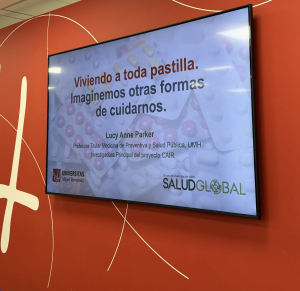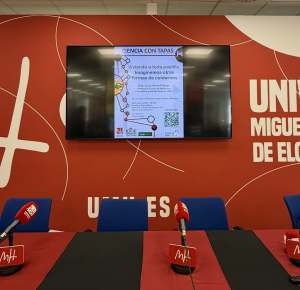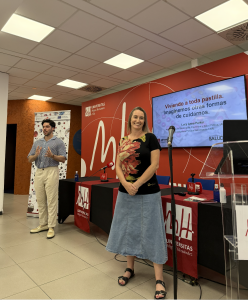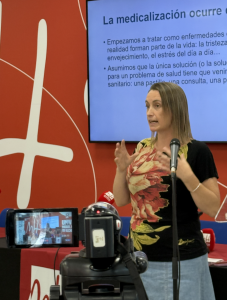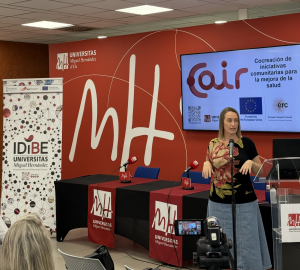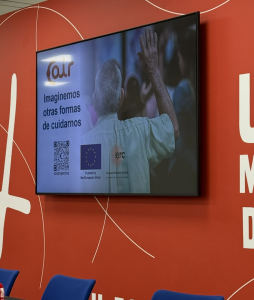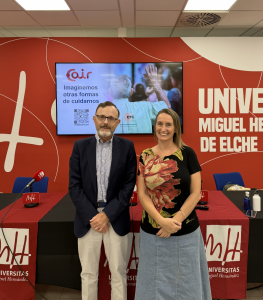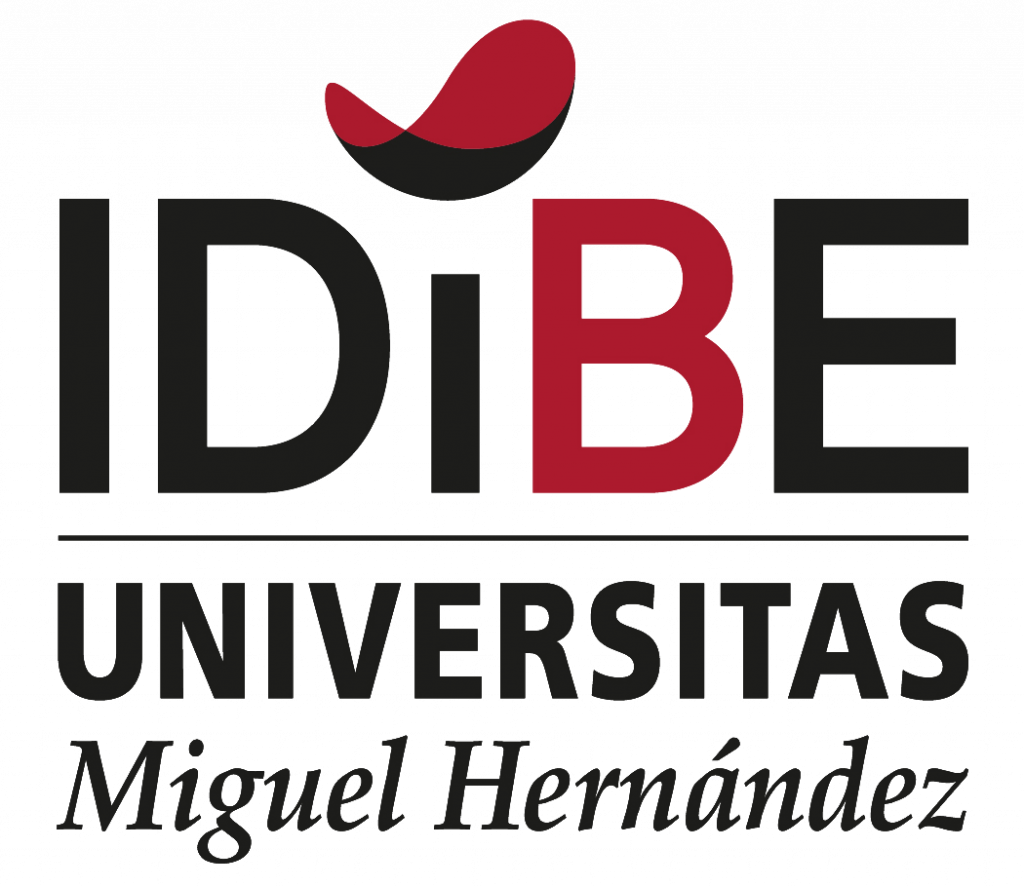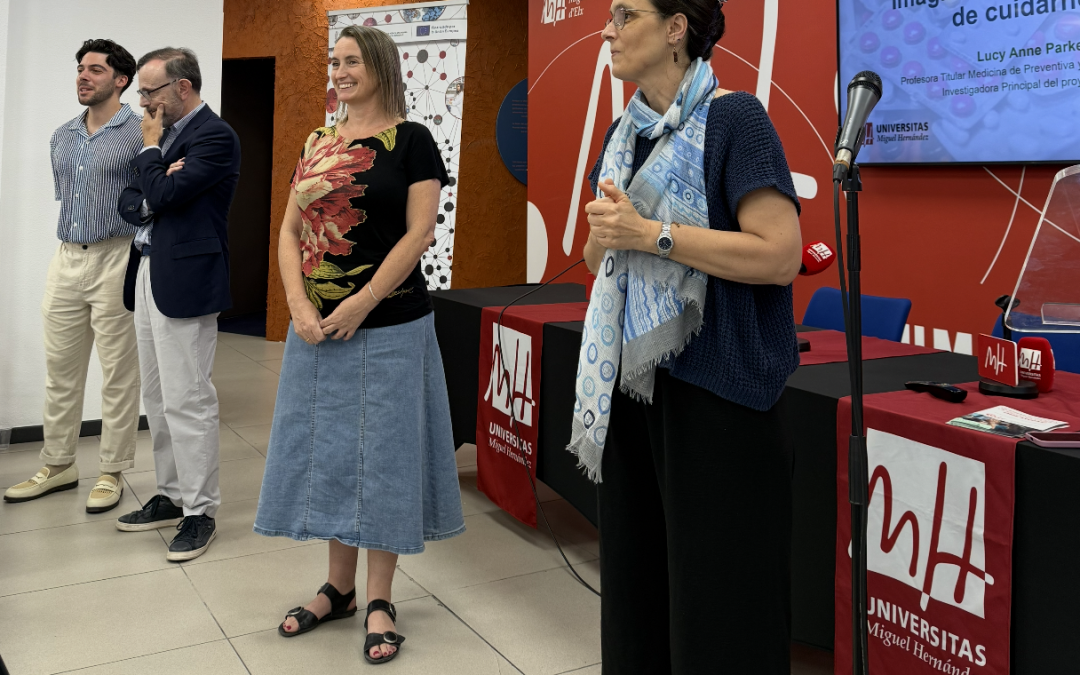On Tuesday, June 10, we had the pleasure of enjoying a new edition of “Ciencia con Tapas.” Below is a summary of the session written by researchers María José Martínez Tomé and Irene Pomares Brí:
“Living Life at Full Speed: Imagining New Ways to Take Care of Ourselves”
The Institute for Research, Development and Innovation in Health Biotechnology of Elche (IDiBE–UMH) organized a new edition of Ciencia con Tapas on Tuesday, June 10, held at the University’s venue in Plaça de Baix, in the center of Elche. The event drew a large and engaged audience.
The session was introduced by Dr. María del Mar Ortega-Villaizán, coordinator of the IDiBE Science Communication Committee, and moderated by IDiBE researcher Dr. Francisco Javier Álvarez Martínez. The guest speaker on this occasion was Dr. Lucy Anne Parker, Associate Professor of Preventive Medicine and Public Health at UMH.
Dr. Parker began her talk by inviting the audience to reflect critically on the growing use of medications in various areas of life, noting that excessive use is associated with a decline in quality of life. She presented a case in which a 61-year-old woman, unable to sleep following the death of her mother, visits a doctor and is prescribed an anxiolytic—eventually becoming a chronic user.
She also explained how lack of physical activity, diabetes, hypertension, and obesity form a difficult-to-control cascade. Dr. Parker emphasized that medications are not inherently bad and that pharmacological treatment is important, but the issue arises when a medical prescription is the only solution offered to the patient.
She further noted that doctors face long waiting lists and limited time with each patient. Taking a pill is often the easiest and most widely accepted option—not so much an individual’s fault, but rather a reflection of a healthcare system that, as currently organized, offers limited alternatives.
In response to the question “What other ways of caring for ourselves can we imagine?”, Dr. Parker presented the CAIR Project, which will be carried out in the district of Carrús in Elche and is funded by the European Union. The goal is to stimulate change in the functioning of the healthcare system. Specifically, the project aims to demonstrate how co-creation—a process in which professionals, patients, neighbors, and institutions come together to collaboratively design and implement health solutions—can improve health outcomes and reduce medication use, thereby easing the burden on primary care services.
To this end, three thematic axes have been defined, focusing on psychological well-being, cardiovascular health, and antibiotic resistance. In the final part of her talk, Dr. Parker explained how the project will be implemented and shared the project website for more information: https://www.cairproject.eu/proyecto/.
Afterward, the floor was opened to questions from the audience, and as is tradition, the evening concluded with the sharing of tapas and drinks.
